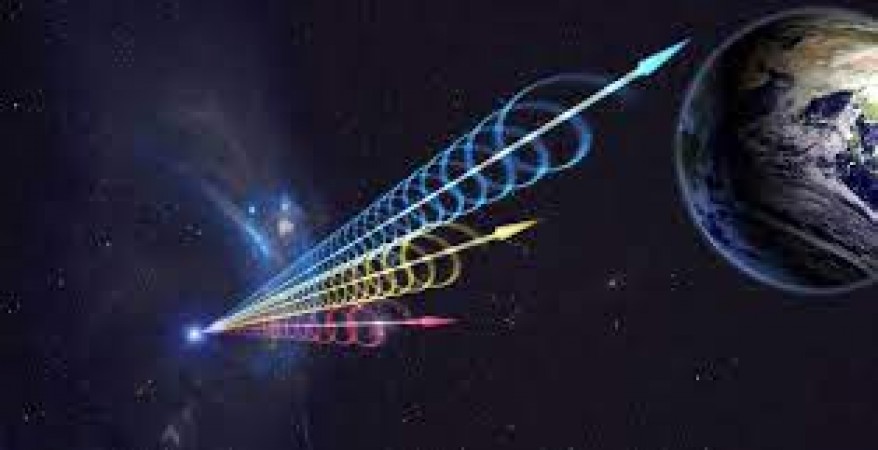
Fast Radio Bursts (FRBs) are intense and ephemeral cosmic signals that have captured the attention of astronomers and astrophysicists around the world. These mysterious bursts of radio waves last only milliseconds but release as much energy as hundreds of millions of suns. First detected in 2007, FRBs have puzzled researchers with their enigmatic origins and sporadic occurrence. This article delves into the captivating world of FRBs, exploring their discovery, potential sources, and the importance of studying these elusive phenomena.
The Discovery of FRBs
First Detection
The first FRB was serendipitously discovered in 2007 when researchers were sifting through archived data. The burst, labeled FRB 010724, originated from a distant and unknown source. Its peculiar characteristics, a rapid increase in intensity followed by a gradual decay, set it apart from any known astrophysical phenomenon.
Subsequent Observations
Since the initial discovery, astronomers have recorded numerous FRBs, revealing that these events are not as rare as once thought. However, their fleeting nature and the challenges in pinpointing their origins have made studying them immensely difficult.
Characteristics of FRBs
FRBs exhibit distinctive features, such as their dispersion measure, which provides clues about the density of the interstellar medium they traverse. Additionally, their polarization properties have shed light on the magnetic fields they encounter along their journey.
Theories on the Origins of FRBs
Numerous theories have emerged regarding the sources of FRBs, but none have been definitively proven. Some of the leading hypotheses include:
Neutron Stars
One theory proposes that FRBs may originate from highly magnetized neutron stars, known as magnetars. These exotic celestial objects have incredibly strong magnetic fields that, when disturbed, could generate the intense radio bursts observed.
Black Holes
Another intriguing possibility is that FRBs are linked to the activities of black holes. Collisions between black holes or interactions within their accretion disks could produce the energetic outbursts of radio waves.
Magnetars
Magnetars, which are a type of neutron star, deserve special attention due to their immensely powerful magnetic fields. The sudden release of pent-up magnetic energy could be responsible for generating FRBs.
Studying FRBs with Radio Telescopes
Radio telescopes play a crucial role in detecting and analyzing FRBs. These sophisticated instruments are designed to capture radio waves from distant objects and provide valuable data to understand the nature of FRBs.
The Role of Radio Telescopes
Radio telescopes allow astronomers to detect and measure FRBs' properties, such as dispersion and polarization. Observatories worldwide collaborate to monitor the sky for these elusive signals.
Challenges in Observing FRBs
The brief duration of FRBs and their sporadic occurrence pose significant challenges for astronomers. Rapid and coordinated responses are necessary to capture valuable data during these fleeting moments.
Recent Advancements in FRB Research
Over the years, advancements in technology and international collaborations have shed more light on the nature of FRBs. Some notable developments include:
Repeating FRBs
Discoveries of repeating FRBs have provided a unique opportunity to study their sources further. These repeating bursts allow scientists to trace them back to their point of origin and potentially identify the underlying mechanisms.
FRB Associations with Galaxies
Recent studies have indicated that some FRBs are associated with galaxies, offering a chance to investigate the environments in which these powerful events occur.
The Cosmic Significance of FRBs
Understanding the origins of FRBs can have broader implications for our understanding of the cosmos.
Understanding the Universe's Structure
Studying FRBs can help astronomers gain insights into the large-scale structure of the universe and the distribution of matter.
Probing Intergalactic Medium
FRBs' radio signals can serve as probes to study the intergalactic medium, providing valuable data about the cosmos' composition and evolution.
Practical Applications of FRB Studies
While the study of FRBs is fundamental for understanding the universe, it also has practical applications.
Navigation in Space
The precise and rapid radio signals from FRBs could potentially aid in spacecraft navigation across vast distances in space.
Potential for Interstellar Communication
Studying FRBs may inspire the development of advanced communication technologies, enabling interstellar communication in the future.
Future Prospects and Challenges
While significant progress has been made in understanding FRBs, several challenges lie ahead.
Advancements in Technology
Continued advancements in radio telescope technology and data analysis techniques will enhance our ability to detect and study FRBs.
Collaborative Research Efforts
International collaboration among astronomers and institutions will facilitate the exchange of knowledge and resources, accelerating the pace of FRB research.
Overcoming Funding Constraints
As with any scientific endeavor, securing funding for sustained research will be crucial in unraveling the mysteries of FRBs. Fast Radio Bursts (FRBs) continue to captivate astronomers and researchers with their intense and ephemeral cosmic signals. While their origins remain shrouded in mystery, the relentless pursuit of knowledge has led to significant advancements in our understanding of these enigmatic events. As technology evolves and collaborative efforts strengthen, the day may come when we unravel the secrets of FRBs and unlock the cosmic wonders they hold.
Akhetonics to uplift in the market for Funds to develop new Amplified Processor
Bill introduced in LS using Birth Certificate as sole ID for multiple purposes
Australian Competition Watchdog Slaps Record $14 Million Fine on Meta for Deceptive Data Collection